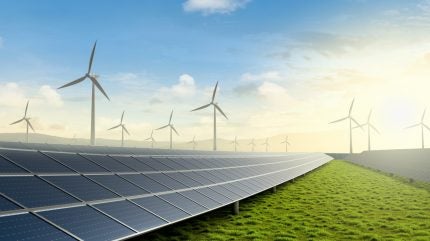
Germany has witnessed a decline in electricity generation from clean energy sources, with less than 80 terawatt-hours (TWh) produced in the first four months of 2025, according to Ember, an energy think tank, reported Reuters.
This figure represents a 16% decrease from the same period in 2024 and is the lowest since at least 2015.

Discover B2B Marketing That Performs
Combine business intelligence and editorial excellence to reach engaged professionals across 36 leading media platforms.
German power companies increased fossil fuel power output by 10% from the previous year to address the shortfall, leading to the highest share of fossil fuels in the domestic power mix since 2018.
The reduction in clean energy generation, particularly a 31% drop in wind power production, has raised concerns regarding Germany’s commitment to the energy transition.
Wind energy in the country’s electricity mix, which fell from 34% between January and April 2024 to 24% for the same period this year, produced only 39TWh due to unusually low wind speeds.
This is the lowest output for the January-April period since 2017, despite a 30% increase in wind generation capacity over the years.

US Tariffs are shifting - will you react or anticipate?
Don’t let policy changes catch you off guard. Stay proactive with real-time data and expert analysis.
By GlobalDataGerman utilities may face further challenges with wind power expected to decline during the summer months, traditionally a period of lower wind speeds.
Conversely, solar farms are anticipated to reach peak production during this time, but will not be able to fully compensate for the wind power deficit due to nighttime inactivity, the report said.
Coal-fired plants have become the primary source of on-demand electricity in Germany, generating 40TWh, a 16% increase from the previous year and the highest since 2023.
This has resulted in coal-fired emissions rising to nearly 42 million tonnes (mt) of CO₂.
High natural gas prices have led to a 9% decrease in gas-fired power generation, although this trend may reverse if gas prices continue to fall, potentially leading to lower emissions if coal generation is simultaneously reduced.
The shift towards more fossil fuel usage has placed Germany’s energy transition leadership under scrutiny.
If German power companies increase both coal and gas-fired generation to meet demand, emissions will continue to rise, potentially jeopardising the country’s role as a proponent of a cleaner European electricity system.
Europe is expected to surpass its previous solar power output records this year, with the first quarter showing a 32% increase in solar electricity generation compared to the same period in 2024.





